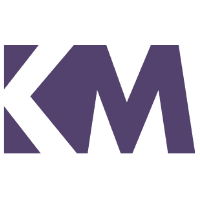Introduction
In the fast-paced world of digital marketing, staying organized and strategic is key to success. One essential tool for businesses to stay on top of their content game is a content calendar. A content calendar is a schedule that outlines the topics, types of content, and publishing dates for all your marketing efforts. It helps businesses plan and execute their content strategy effectively, ensuring consistency and relevance across all platforms.
Understanding Content Types and Advantages
Before delving into content calendar ideas, let’s explore the types of content businesses can leverage and the advantages of each:
Blog Posts: Informative articles that provide value to your audience and establish your authority in your industry.
Social Media Posts: Engaging content shared on social media platforms to connect with your audience, build brand awareness, and drive engagement.
Videos: Dynamic and visually compelling content that captures attention and delivers your message in an engaging format.
Web Copy: Compelling and persuasive copywriting for your website, including landing pages, product descriptions, and about pages.
PR Newswires: Press releases and announcements distributed to media outlets and journalists to generate buzz and coverage for your brand.
Why Businesses Need a Content Calendar
A content calendar provides several benefits for businesses:
- Organization: It helps businesses stay organized and plan their content strategy in advance.
- Consistency: A content calendar ensures consistent publishing schedules, which is essential for building trust and credibility with your audience.
- Efficiency: By planning ahead, businesses can streamline their content creation process and avoid last-minute scrambling.
- Alignment: A content calendar ensures that all content aligns with business goals and objectives, creating a cohesive brand message across all platforms.
How to Create a Content Calendar
Creating a content calendar involves several steps:
Define Your Goals: Determine your content marketing objectives and what you hope to achieve with your content.
Identify Your Audience: Understand your target audience’s preferences, interests, and pain points to create content that resonates with them.
Choose Your Platforms: Decide which platforms you’ll be using to distribute your content, such as your website, social media channels, email newsletters, etc.
Brainstorm Content Ideas: Generate a list of content ideas that align with your goals and audience preferences.
Plan Your Content Schedule: Use a spreadsheet or online tool to map out your content schedule, including topics, publication dates, and distribution channels.
Create Your Content: Once your calendar is in place, start creating your content according to your schedule.
Top 12 Content Calendar Ideas for Small and Mid-sized Businesses in Kenya
Educational Blog Series: Offer valuable insights and tips related to your industry to position your brand as an authority.
Behind-the-Scenes Videos: Take your audience behind the scenes to showcase your company culture, team members, and daily operations.
Customer Success Stories: Highlight case studies and testimonials from satisfied customers to build trust and credibility.
Holiday-themed Content: Create content around holidays and special occasions relevant to your audience.
Interactive Quizzes and Polls: Engage your audience with interactive quizzes and polls related to your industry or products.
Product Tutorials and Demos: Provide tutorials and demos to educate your audience about your products or services and how to use them effectively.
Industry News Roundups: Curate and share relevant industry news and updates to keep your audience informed.
FAQs and How-to Guides: Address common questions and provide step-by-step guides to help your audience solve their problems.
Infographics and Data Visualizations: Present complex information in a visually appealing and easy-to-understand format.
User-generated Content Campaigns: Encourage your audience to create and share content related to your brand or products.
Interactive Webinars and Workshops: Host live webinars and workshops to engage with your audience in real-time and provide valuable insights.
Seasonal Promotions and Offers: Run seasonal promotions and offers to drive sales and generate excitement among your audience.
KWETU Marketing Agency: Your Content Marketing Partner in Kenya
At KWETU Marketing Agency, we offer a comprehensive range of content marketing services tailored to meet the unique needs of businesses in Kenya. From academic writing and web copywriting to PR newswires and video scripts, our team of experts is dedicated to helping you create compelling and effective content that resonates with your audience and drives results. With our strategic approach and proven track record, we can assist your business in maximizing the impact of your content marketing efforts and achieving your goals.
Our Content Marketing Services in Kenya:
- Academic Writing
- Web Copywriting
- PR Newswires
- Articles
- Video Scripts
- Social Media Captions
- Blog Posts
- And more
Tools and Techniques for Content Creation and Sharing
Content Management Systems (CMS): Platforms like WordPress, Drupal, and Joomla facilitate content creation, management, and publishing for websites and blogs.
Social Media Management Tools: Tools like Hootsuite, Buffer, and Sprout Social help businesses schedule and manage their social media content across multiple platforms.
Email Marketing Platforms: Services like Mailchimp, Constant Contact, and HubSpot enable businesses to create and distribute email newsletters and campaigns to their subscribers.
Conclusion
In conclusion, a well-planned and executed content calendar is essential for businesses looking to succeed in the competitive digital landscape of 2024. By leveraging the top 12 content calendar ideas outlined in this guide and partnering with KWETU Marketing Agency for expert content marketing services, businesses in Kenya can effectively engage their audience, drive brand awareness, and achieve their marketing goals. With strategic planning, creative content creation, and the right tools and techniques, businesses can stay ahead of the curve and thrive in the ever-evolving world of digital marketing.







 Stay ahead in the digital world! Don’t just read—put the insights from The KWETU Blog into action today and watch your brand grow.
Stay ahead in the digital world! Don’t just read—put the insights from The KWETU Blog into action today and watch your brand grow. 
